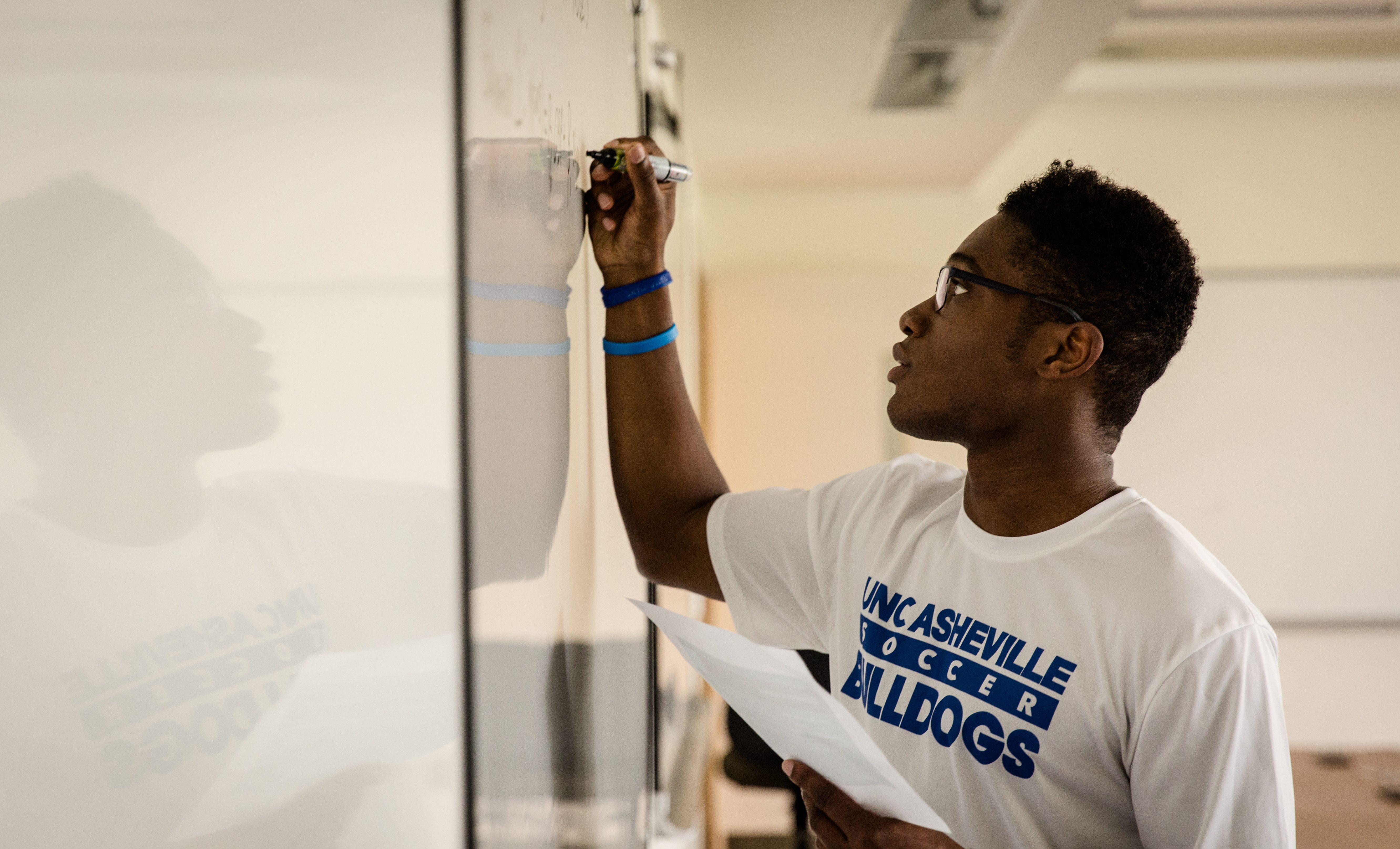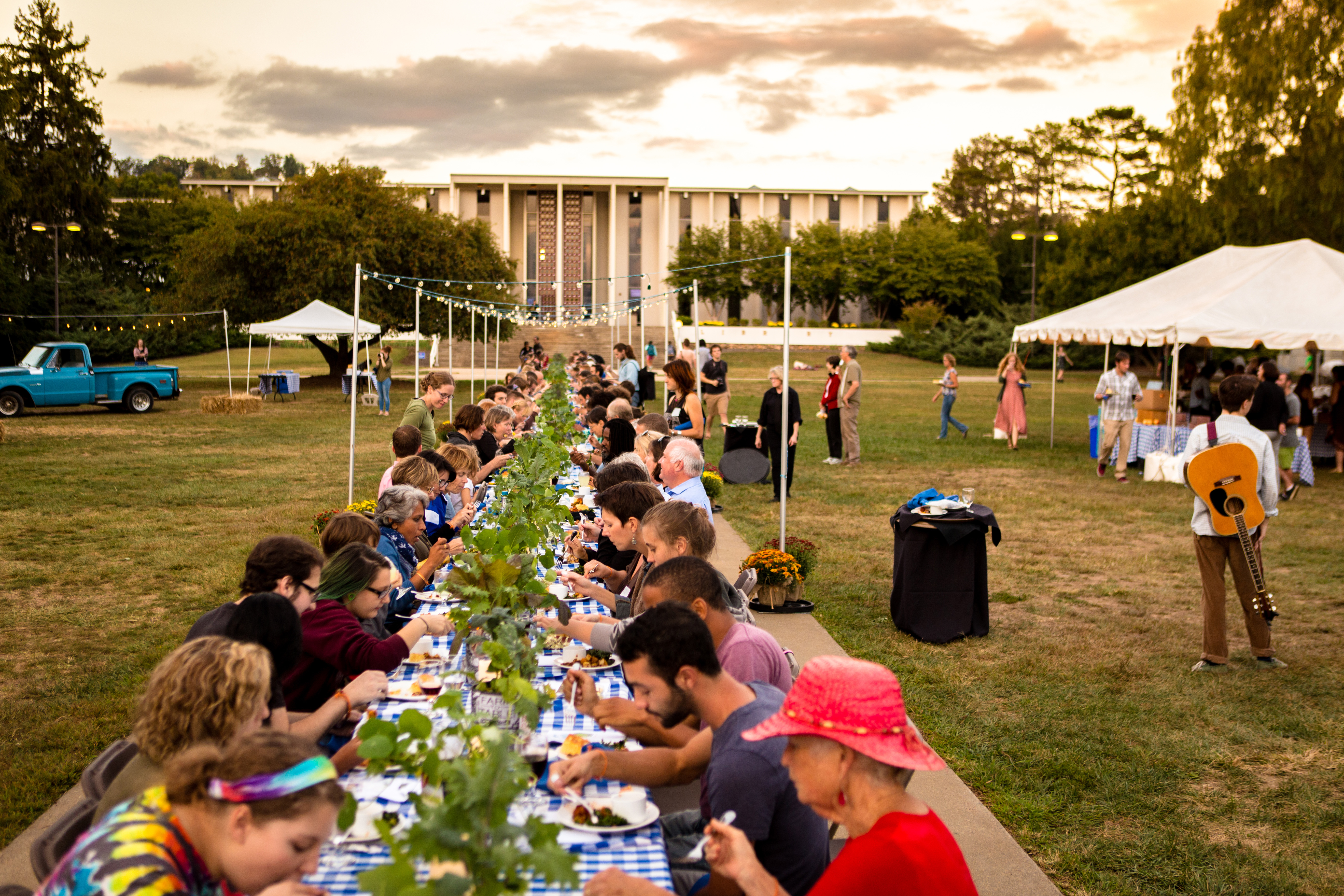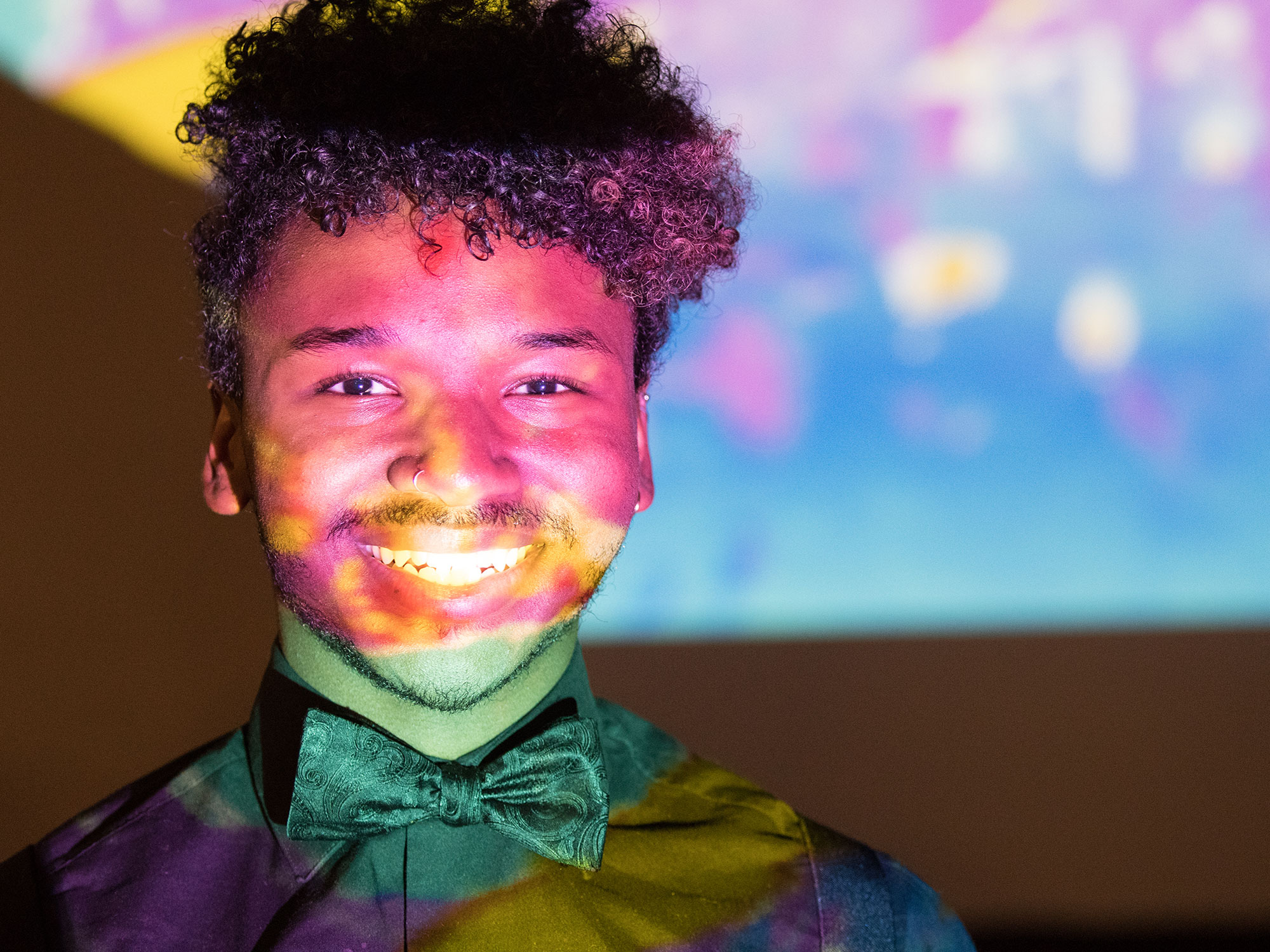
Who We Are
Our graduates work at large metropolitan newspapers and in Hollywood production offices. They create original films and documentaries, design strategic communication plans for major corporations, produce broadcast news, develop podcasts, and pursue graduate degrees in myriad fields. The range of their pursuits reflect the opportunities available in today’s evolving media industries, as well as the skills taught within the department. Our mass communication faculty bring both theoretical knowledge and practical skills to students, equipping graduates with a foundation from which to launch careers as journalists, communication professionals, film producers, social media strategists, photographers, scholars, and more.
What You’ll Learn
All mass communication majors take foundational courses in journalism, video production, communication theory, media law, and ethics before creating a course of study to develop expertise within your chosen media field. Beyond the classroom, many of our students produce original film projects, complete internships to gain real-world experience, and work for the university’s student-run newspaper, The Blue Banner. In short, our graduates learn what it takes to thrive in today’s dynamic media industries.

Who We Are
Whether you’re setting up the logistics for a company, analyzing political polls, animating Pixar movies, or combating disease, high-level mathematics is at the heart of many creative and analytical endeavors alike. We offer concentrations in statistics, theoretical and applied mathematics, as well as teacher licensure, to prepare students for careers in finance, government, research, technology, multimedia, education, and more. Our classes are intentionally small so faculty can give students individualized attention, and students are welcome to meet with professors whenever they’re available.
What You’ll Learn
Math is fundamental to many disciplines and modern professions. Our math majors gain a strong foundation in mathematical concepts and learn data analysis, pattern recognition, communication skills, and problem-solving. Students can promote math literacy through the Asheville Initiative for Math and Science Olympiad for grades K-12, or you can join our active chapters of the Association for Women in Math and the Mathematical Association of America. Our Math Lab offers tutoring and a relaxed, quiet study space for students of all majors.

Who We Are
UNC Asheville’s Women, Gender and Sexuality Studies (WGSS) program questions and challenges assumptions and constructs about gender and sexuality that affect all lives around the globe. Emerging from an activist tradition, WGSS provides resources to the university and the community by offering an array of co-curricular activities for students and community members. We regularly bring renowned artists, academics, and activists to campus, and also host our annual F-Word Film Festival (“f” for feminist) and our biennial Queer Studies Conference.
What You’ll Learn
WGSS is an interdisciplinary program, offering core courses in WGSS and related electives from a variety of departments, including anthropology, political science, psychology, sociology, history, literature, philosophy, and more. Courses investigate the role of culture, social institutions and policy on perspectives of women, gender and sexuality in psychological, biological, social, political, literary and humanistic terms. Students are encouraged to apply their academic understanding to community action through the internship course, service learning, and volunteerism. Our students are prepared for careers in business, education, journalism, law, politics, public policy, and many other fields that require strong analytical and communication skills.

Why Economics?
We ask the big questions: How long does it take for a city’s investment in renewable energy to pay off? Is it less expensive to eat locally-produced food? How does the NBA determine ticket prices? From social issues to the business world, economics touches almost all aspects of our lives, and these are just a few real-world topics our students have researched. As North Carolina’s public liberal arts university, UNC Asheville offers unique opportunities to economics majors, including small, collaborative classes, faculty mentorship, and the chance to apply economics to contemporary concerns, like the environment, human diversity, and globalization.
What You’ll Learn
Within the general major in economics, students can focus on their interests in areas such as environmental economics, international economics, monetary economics and finance, and beyond.
All economics majors undertake a research project, and many graduates use this research as a stepping stone to graduate school or a career in a variety of fields, including finance, small business, education, the nonprofit sector, government, and more.

Who We Are
UNC Asheville is an excellent place to explore and inform your interest in sociology and anthropology. In our department you’ll find a diverse and interdisciplinary group of faculty who have carried out research on five continents and who are dedicated to helping students find ways to understand and engage with the world’s complexities. We believe our disciplines are intimately related, yet distinct, each involved in documenting and understanding the varieties of human experience.
What You'll Learn
Cultural anthropology is one of the most international of all the social sciences. A diverse but comprehensive discipline, anthropology investigates the social and cultural life of human beings in all times and all places. A concentration in anthropology provides students with an appreciation of other ways of life, different systems of belief and knowledge, and perhaps most importantly, a better understanding of the world in which they live. Students majoring in sociology are prepared for careers in social work, criminal justice, non-profit agencies, business and government as well as graduate study in sociology, anthropology, criminology, social work, law and various other fields.

Who We Are
Bring your creative visions to life at UNC Asheville. With a faculty of acclaimed artists and art historians within the thriving arts scene of Asheville, UNC Asheville’s art and art history programs offer rigorous training in the creative sector. Our close-knit, supportive department encourages imagination and experimentation while challenging you to integrate content, concept, and technique to discover your own unique voice. Studio art majors can choose from six areas of concentrations: ceramics, drawing, painting, photography, printmaking, or sculpture. Related majors include art history and arts management and entrepreneurship.
What You'll Learn
Context and communication are key to learning how to be an effective artist, so you'll begin your art education by building a foundation of technical and writing skills in art history, design, and drawing. Through class critiques, you’ll learn how to give and receive valuable feedback on your work from faculty and classmates. Most of your time will be spent working in our facilities, which include six art concentration studios, firing kilns, dark rooms, and digital labs. Our newest interdisciplinary makerspace, STEAM (Science, Technology, Engineering, Art, Math) Studio, exemplifies UNC Asheville's liberal arts mission by bringing art and science together to create collaborative pieces of art and technology.
We also have multiple galleries across campus to host student, faculty and visiting artist exhibitions. All senior-level students produce a major body of work in the form of a solo or group exhibition and portfolio, which serves as strong preparation for postgraduate work. All students are also encouraged to learn outside of the studio and gain professional experience through internships at local museums and galleries.

Who We Are
UNC Asheville is an excellent place to explore and inform your interest in sociology and anthropology. In our department you’ll find a diverse and interdisciplinary group of faculty who have carried out research on five continents and who are dedicated to helping students find ways to understand and engage with the world’s complexities. We believe our disciplines are intimately related, yet distinct, each involved in documenting and understanding the varieties of human experience.
What You’ll Learn
Cultural anthropology is one of the most international of all the social sciences. A diverse but comprehensive discipline, anthropology investigates the social and cultural life of human beings in all times and all places. A concentration in anthropology provides students with an appreciation of other ways of life, different systems of belief and knowledge, and perhaps most importantly, a better understanding of the world in which they live. Students majoring in sociology are prepared for careers in social work, criminal justice, non-profit agencies, business and government as well as graduate study in sociology, anthropology, criminology, social work, law and various other fields.
Your class time will include discussion of a range of issues (e.g. gender and sexuality, queer theory, race and ethnicity, labor, globalization, disability studies, deviance and social control, poverty). Research methods, field work, internships, service learning opportunities, and working with faculty on an undergraduate research project will help you build skills to meet your career goals. The fields of sociology and anthropology also pair well with other disciplines at our liberal arts university. Whether you’re interested in politics, social change, poetry or art, sociology and anthropology invite you to find meaningful engagement with the larger world.

Student Equipment Rental Form
Please complete this form to rent equipment. Questions: email kkmichau@unca.edu
New Media Studio Reservation Form
Please complete this form to reserve a Studio. Questions: email kkmichau@unca.edu
Who We Are
Created with code and inspired by traditional art and design, New Media at UNC Asheville encompasses software art, science visualization, robotics, virtual reality, and augmented architecture. Student and faculty work includes two- and three-dimensional animation, stop motion, video, audio/visual, interactive art and design, 3D printing, web-based platforms, sonic art, performance art, installations, client-driven design, and digital prints. Our department focuses on creativity and innovation in the study of new media within a liberal arts education. We encourage students to think critically, take risks, and collaborate across disciplines.
What You’ll Learn
By studying theory and through hands-on practice, students learn to explore and articulate emerging technological forms of art, design and communication. Not only do new media majors master state-of-the-art tools and software, they also learn how art, media, and culture affect each other and society as they develop their own creative approach. Beyond the classroom, students find inspiration from renowned visiting artists and guest speakers, and they can get a head start on their careers through internships in art and design. From software developers to climate researchers to experimental artists, our graduates have become leaders in some of the fastest growing fields of our time.









